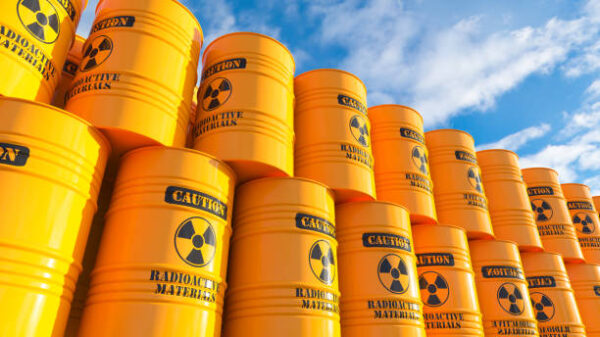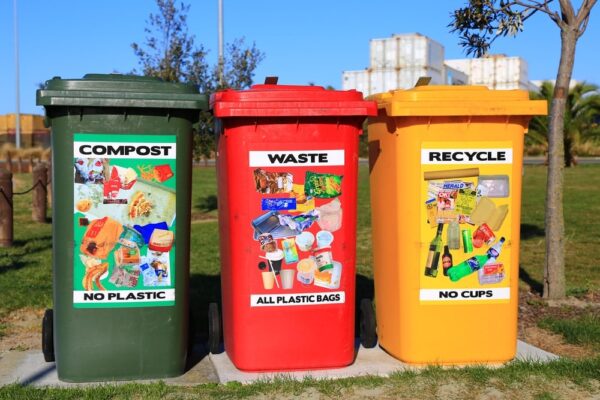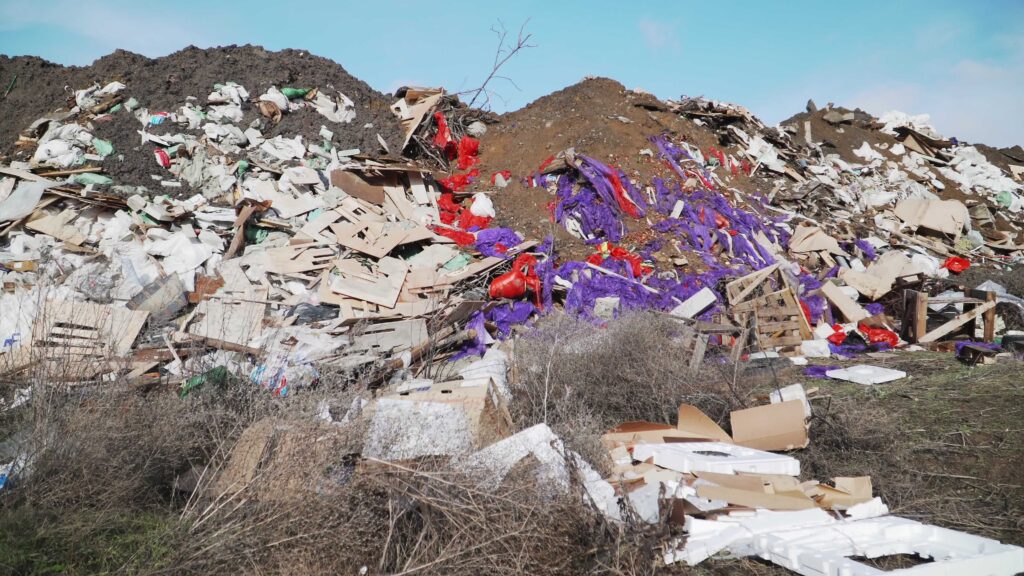
Introduction
Disposal techniques are crucial for effectively managing waste and ensuring the protection of human health and the environment. With various types of waste being generated every day, it becomes essential to adopt appropriate methods for waste disposal. In this blog post, we will explore the five methods of waste disposal, the four types of waste disposal, the importance of waste disposal, and examples of disposal. Additionally, we will discuss the advantages and disadvantages of waste disposal techniques, answer frequently asked questions, provide useful tips and warnings, and conclude with the significance of proper waste management. Let’s delve into the world of waste disposal methods and their implications.
What are Waste Disposal Techniques?
Disposal techniques refer to the methods and strategies employed to get rid of waste materials effectively. These techniques aim to minimize the impact of waste on the environment and human health while ensuring the efficient management of waste. By utilizing proper disposal methods, we can reduce pollution, protect natural resources, and promote sustainable living.
In today’s world, finding solutions for recycling items and disposing of waste properly has become more important than ever. As individuals and communities, we must take responsibility for our actions and make conscious choices to minimize our impact on the environment. By adopting a “little waste” mindset, we can make conscious decisions to minimize packaging, choose reusable items over disposable ones, and opt for products with less packaging.
In this blog post, we will explore different waste management methods, their benefits, and how they play a vital role in reducing our carbon footprint. Landfills and incinerators are two commonly used methods to manage non-recyclable waste. Landfills provide a contained space to dispose of waste, minimizing its impact on the environment. By partnering with a waste management company, you can rest assured that your waste will be handled responsibly, adhering to strict guidelines and reducing your carbon footprint. From the use of microorganisms to break down organic waste to the implementation of compact waste management systems, these innovative methods help optimize waste management processes.
Understanding disposal requirements is crucial to ensuring that waste is handled properly. By being aware of these requirements and seeking out appropriate disposal facilities, we can prevent these contaminants from seeping into the soil and water sources. Municipal solid waste, which includes everyday items like household waste and packaging materials, can be treated through various methods. Some materials, such as non-porous or hazardous items, require special handling and should never be thrown into the regular waste stream. When waste is properly managed, it can even be transformed into a valuable by-product.
What are the 5 Waste Disposal Methods?

Credit: organicabiotech.com
With the increasing volume of waste generated worldwide, it is essential to adopt proper waste management practices that promote recycling, disposal, and reuse. Let’s explore some of the most commonly used waste disposal methods and their benefits:
1. Landfill:
Landfills are one of the most common methods of waste disposal. In this method, waste materials are buried underground, isolated from the surrounding environment. However, this method requires careful planning and management to prevent groundwater contamination and the release of harmful gases like methane.
2. Incineration:
Incineration involves the controlled burning of waste materials at high temperatures. This method reduces the volume of waste and produces energy in the form of heat or electricity. However, incineration can release toxic chemicals into the atmosphere if not properly regulated.
3. Recycling:
Recycling is the process of converting waste materials into new products. It helps conserve resources, reduce energy consumption, and minimize waste generation. By sorting and processing recyclable materials such as paper, plastic, glass, and metal, we can create a closed-loop system that reduces the need for raw materials.
4. Composting:
Composting is a natural method of waste disposal that involves the decomposition of organic waste materials. This process turns waste into nutrient-rich compost that can be used as plant manure. Composting helps divert organic waste from landfills and reduces the production of harmful greenhouse gases.
5. Waste-to-Energy:
Waste-to-energy technologies convert waste materials into usable energy sources such as electricity, heat, or fuel. These methods include anaerobic digestion, gasification, and pyrolysis. Waste-to-energy reduces the reliance on landfills and harnesses the energy potential of waste.
What are the 4 Types of Waste Disposal?
1. Solid Waste Disposal:
Solid waste includes non-liquid, non-gaseous materials such as household waste, construction debris, and industrial waste. Solid waste disposal methods include landfilling, incineration, and recycling.
2. Liquid Waste Disposal:
Liquid waste refers to wastewater, sewage, and other liquid materials. Proper treatment and disposal of liquid waste are essential to prevent contamination of water sources. Waste water treatment solutions, such as sewage treatment plants and septic systems, are used for liquid waste disposal.
3. Hazardous Waste Disposal:
Hazardous waste poses a threat to human health and the environment due to its toxic, flammable, corrosive, or reactive nature. Specialized disposal methods, such as high-temperature incineration and chemical treatment, are employed to manage hazardous waste safely.
4. Biomedical Waste Disposal:
Biomedical waste includes waste generated from healthcare facilities, such as used needles, blood-soaked materials, and pharmaceutical waste. Proper disposal of biomedical waste is crucial to prevent the spread of infections and protect public health.
What is an Example of Disposal?
One example of disposal is the practice of recycling paper. Used paper is recycled by collecting, sorting, and processing it into new paper products. This method reduces the demand for fresh raw materials, saves energy, and minimizes waste generation. Recycling paper is an effective way to manage waste and turn it into a valuable resource.
1. Recycling:
Recycling is one of the most environmentally friendly waste disposal methods. It involves collecting and processing waste materials such as paper, plastic, glass, and metal to manufacture new products. By recycling, we can reduce the volume of waste sent to landfills and conserve natural resources. Recycling is not a simple process with toxic waste. For this, there is incinerator and dump and other different methods. There is a microorganism, sanitary landfill, waste disposal, and put. Some waste into a landfill, if possible. Many methods are with help gas, different benefits of waste management.
2. Incineration:
Incineration is a waste disposal method that involves the combustion of waste at high temperatures. This process not only reduces the volume of waste but also generates energy in the form of heat or electricity. Incinerators equipped with advanced technologies can also minimize harmful emissions, making them a viable option for managing certain types of waste.
3. Landfill:
Landfills are specially designed sites for the disposal of waste. They are equipped with multiple waste layers that help contain and manage waste effectively. Sanitary landfills, in particular, ensure that waste items are disposed of in a way that minimizes contamination and potential damage to the environment.
4. Composting:
Composting is a natural waste disposal method that involves the decomposition of organic matter. Through the action of microorganisms, kitchen waste, yard trimmings, and other organic materials can be transformed into nutrient-rich compost. This process not only reduces waste but also provides a valuable resource for gardening and agriculture.
5. Hazardous Waste Management:
Some waste items are considered hazardous and require specialized management services. These include toxic chemicals, electronic waste, and medical waste, among others. Proper handling, storage, and disposal of these materials are crucial to prevent harm to the environment and human health.
Why is Waste Disposal Important?
Waste disposal plays a vital role in protecting human health and the environment. Here are some key reasons why waste disposal is important:
1. Protection of Human Health and the Environment:
Proper waste disposal prevents the release of toxic chemicals and pollutants that can harm human health and contaminate natural resources like air, water, and soil. By managing waste effectively, we reduce the risk of diseases and environmental degradation.
2. Containment of Hazardous Substances:
Hazardous waste, such as chemicals and biomedical waste, requires specialized disposal methods to ensure its containment. Improper handling and disposal of hazardous substances can have severe consequences for both the environment and human health.
Advantages of Waste Disposal
- Protection of human health and the environment
- Containment of hazardous substances
Disadvantages of Waste Disposal
- High costs associated with some disposal methods
- Technical complexity in implementing certain techniques
- Potential for accidents if waste is mishandled or disposed of improperly
Tips and Warnings
- Proper waste management offers a variety of solutions to reduce waste formation and its impact on the environment. By adopting environmentally friendly methods like recycling, composting, and waste-to-energy technologies, we can significantly reduce the amount of waste sent to landfills.
- Improper disposal of waste can have severe consequences. It can contaminate soil, water sources, and air, leading to long-term damage to the environment. Harmful greenhouse gases like methane, produced by decomposing waste in landfills, contribute to climate change.
- Waste management services provided by professional companies offer comprehensive solutions to handle different types of waste safely and efficiently. These services include collection, transportation, treatment, and final disposal of waste, adhering to strict guidelines and standards.
- By managing waste, you are also making a difference to society and the world in general. While none of us can completely get rid of garbage, we can always adopt eco-friendly practices of reducing and reusing waste. This way, you create an example for the people around you, who in turn are now motivated to embrace a sustainable approach.
- Landfills need to be formed in areas with low groundwater levels and far from places with flooding.
How Solid Material Affects the Environment

Credit: Karim Boiko/Vecteezy
In today’s world, it is crucial to pay attention to how we manage waste. Improper waste disposal can have detrimental effects on the environment, seeping into the soil and causing long-term damage. However, by adopting sustainable practices and incorporating secondhand products, we can significantly reduce our impact and facilitate hydroponic solutions.
Compost can be used as a natural fertilizer, providing essential nutrients to plants while reducing the need for synthetic chemicals. The importance of proper waste disposal cannot be overstated. It is not just about sending waste away; it is about understanding the impact our waste has on the environment and taking responsibility for it. By choosing to compost, recycle, and use secondhand products, we can significantly reduce the amount of waste that ends up in landfills or seeps into the soil. When it comes to waste management, each type of waste poses unique challenges.
Conclusion:
As our population grows and consumption rates increase, the need for effective waste management becomes ever more apparent. By recycling, responsible waste disposal, and embracing innovative methods, we can all contribute to a greener future.
Whether it’s through reducing waste, recycling materials, or relying on waste management companies, every action counts in our collective effort to protect the planet. Let us prioritize waste management and work together towards a sustainable and healthier world for generations to come. In conclusion, waste and turns are the hidden costs of our disposable culture.
In conclusion, waste disposal and management are of utmost importance in today’s world. By adopting a combination of recycling, composting, incineration, and other methods, we can effectively reduce waste, conserve resources, and protect the environment. It is crucial to understand the different waste types and their potential impact to make informed decisions regarding waste disposal.
